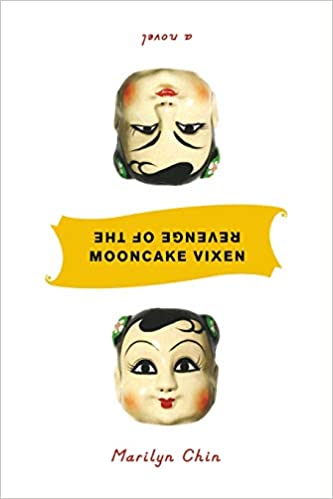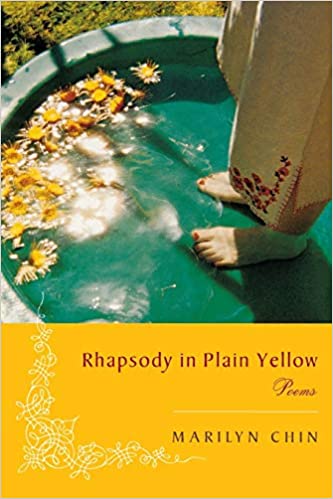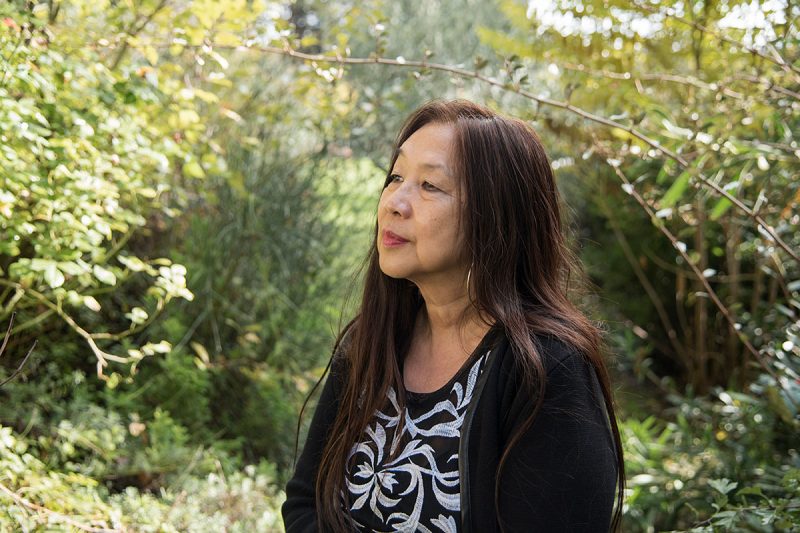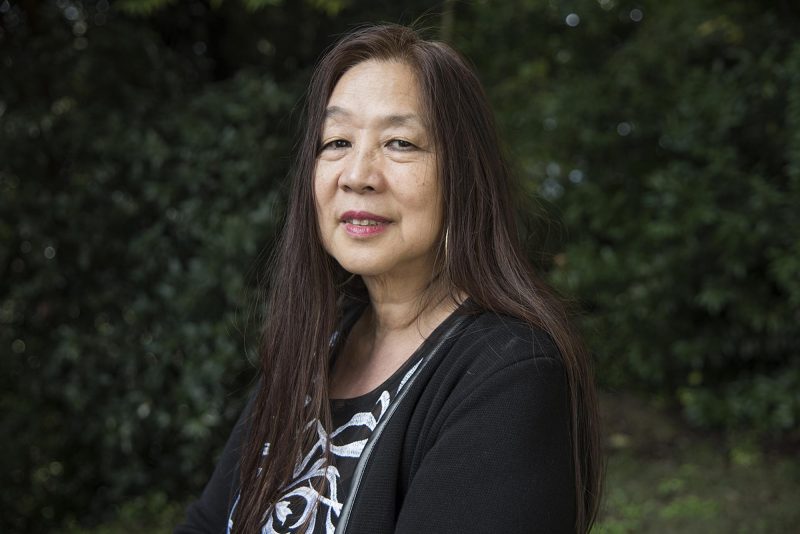

Marilyn Chin
Poet, Novelist, Translator
Anisfield-Wolf Book Award
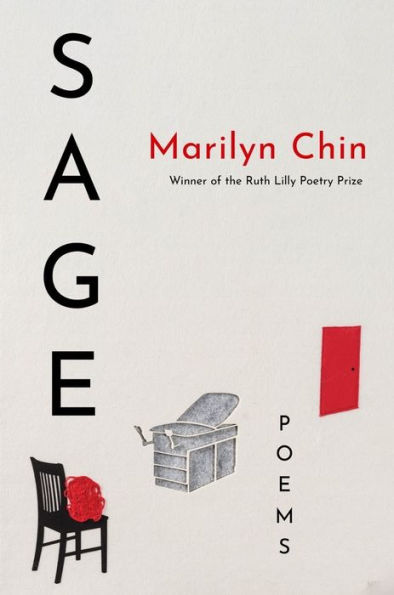
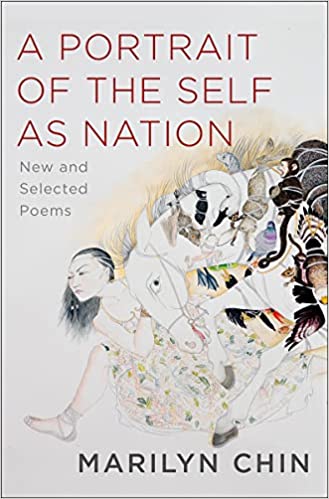
Readings &
Lecture Topics
- An Evening with Marilyn Chin
Biography
“Marilyn Chin’s poems excite and incite the imagination through their brilliant cultural interfacings, their theatre of anger, their compassion, and their high mockery of wit. Reading her, our sense of the possibilities of poetry is opened further, and we feel again what an active, powerful art it can be.” ―Adrienne Rich
“A poet of contradictions, poignant sentiment, beat-your-ass toughness, and unexpected humor.” ―Los Angeles Review of Books
“Marilyn Chin is a major voice.” ―Eavan Boland
Marilyn Chin is the award-winning poet and author of Rhapsody in plain yellow (2003), Hard Love Province (2014), and A Portrait of the Self As Nation (2018), Sage (2023), among others. Born in Hong Kong and raised in Portland, Oregon, Chin’s works have become Asian American classics and are taught in classrooms internationally. Contemporary Women Poets essayist Anne-Elizabeth Green observed, “The pains of cultural assimilation infuse [Chin’s] poems.” She is also the author of the novel Revenge of the Mooncake Vixen (2009). In addition to writing poetry and fiction, she has translated poems by the modern Chinese poet Ai Qing and co-translated poems by the Japanese poet Gozo Yoshimasu.
Chin has read and taught workshops all over the world. Recently, she was guest poet at universities in Beijing, Shanghai, Singapore, Hong Kong, Manchester, Sydney, Berlin, Iowa and elsewhere. She’s won numerous awards, including the 2020 Ruth Lilly Poetry Prize, the United Artist Foundation Fellowship, the Radcliffe Institute Fellowship at Harvard, the Rockefeller Foundation Fellowship at Bellagio, the Anisfield Wolf Book Award, two NEAs, the Stegner Fellowship, the PEN/Josephine Miles Award, five Pushcart Prizes, and a Fulbright Fellowship to Taiwan.
She is featured in a variety of anthologies, including The Norton Anthology of Literature by Women and The Norton Anthology of Modern and Contemporary Poetry, The Penguin Anthology of 20th Century Poetry, and The Best American Poetry.
She is Professor Emerita at San Diego State University and presently serves as a Chancellor Emeritus at the Academy of American Poets.
Short Bio
Marilyn Chin was born in Hong Kong. She is the author of six poetry collections and a novel. She is the winner of the 2020 Ruth Lilly Prize in Poetry, the Anisfield-Wolf Book Award, the PEN Oakland/Josephine Miles Literary Award, and a Radcliffe Institute fellowship, among other honors. Presently, she serves as a chancellor emeritus of the Academy of American Poets and lives in San Diego.
Videos
Publications
Sage
Poetry, 2023
In her galvanizing sixth collection of poems, Marilyn Chin once again turns moral outrage into unforgettable art. A rambunctious take on our contemporary condition, Sage shifts skillfully in tone and register from powerful poems on social justice and the pandemic to Daoist wild girl satire. Whether she is spinning tall tales, mixing Chinese poems with hip-hop rhymes, reinventing lovelorn folk songs with a new-world anxiety or penning a raucous birthday poem, a heart-rending elegy, or an “un-gratitude” prayer, Chin offers dazzling surprises at every turn.
A Portrait of the Self as Nation: New and Selected Poems
Poetry, 2018
Spanning thirty years of dazzling work―from luminous early love lyrics to often-anthologized Asian American identity anthems, from political and subversive hybrid forms to feminist manifestos―A Portrait of the Self as Nation is a selection from one of America’s most original and vital voices. Marilyn Chin’s passionate, polyphonic poetry travels freely from the personal to the mythic, from the political to the spiritual. Deeply engaged with the complexities of cultural assimilation, feminism, and the Asian American experience, she spins precise, beautiful metaphors as she illuminates hard-hitting truths.
A Portrait of the Self as Nation celebrates Chin’s innovative activist poetry: her fearless and often confrontational early collections, Dwarf Bamboo and The Phoenix Gone, the Terrace Empty; the rebellious, vivid language of Rhapsody in Plain Yellow; and the erotic elegies of Hard Love Province. Also included are excerpts from Chin’s daring novel, Revenge of the Mooncake Vixen, and a vibrant chapter of new poems and translations.
In poems that are direct and passionately charged, Marilyn Chin raises her voice against systems of oppression even as her language shines with devastating power and beauty. Image after image, line by line, Chin’s masterfully reinvented quatrains, sonnets, allegories, and elegies are unforgettable.
Hard Love Province
Poetry, 2015
Chin’s fourth volume of poems, Hard Love Province, is composed of erotic elegies in which the speaker grieves for the loss of her beloved. In “Void” she writes with the imagistic, distilled quietude of a solitary mourner: “It’s not that you are rare / Nor are you extraordinary // O lone wren sobbing on the bodhi tree / You are simple and sincere.” In “Formosan Elegy,” by contrast, she is that mourner, beyond simplicity or quietude, crying out for a lover: “I sing for you but my tears have dried in my gullet / Walk the old dog give the budgies a cool bath / Cut a tender melon let it bleed into memory.”
Here, too, are poems inspired by Chin’s poetic forbearers and mentors―Dickinson, Plath, Ai, Gwendolyn Brooks, Tu Fu, Adrienne Rich, and others―honoring their work and descrying the global injustice they addressed. “Whose life is it anyway?” she asks in a poem for Rich, “She born of chrysalis and shit / Or she born of woman and pain?”
Emotionally nuanced and electric with high-flying verbal experimentation, image after image, line by line, Chin’s spectacular reinventions, her quatrains, sonnets, allegories, and elegies, are unforgettable.
Revenge of the Mooncake Vixen: A Manifesto in 41 Tales
Fiction, 2009
Raucous twin sisters Moonie and Mei Ling Wong are known as the “double happiness” Chinese food delivery girls. Each day they load up a “crappy donkey-van” and deliver Americanized (“bad”) Chinese food to homes throughout their southern California neighborhood. United in their desire to blossom into somebodies, the Wong girls fearlessly assert their intellect and sexuality, even as they come of age under the care of their dominating, cleaver-wielding grandmother from Hong Kong. They transform themselves from food delivery girls into accomplished women, but along the way they wrestle with the influence and continuity of their Chinese heritage.
Marilyn Chin’s prose waxes and wanes between satire and metaphorical lyric, referencing classical Chinese tales and ghost stories that are at turns sensual, lurid, hilarious, shocking, and surreal.
Rhapsody in Plain Yellow: Poems
Poetry, 2003
Marilyn Chin, with her multilayered, multidimensional, intercultural singing, elegizes the loss of her mother and maternal grandmother and tries to unravel the complexities of her family’s past. She tells of the trials of immigration, of exile, of thwarted interracial love, and of social injustice. Some poems recall the Confucian “Book of Songs,” while others echo the African American blues tradition and Western railroad ballads. The title poem references the Han Dynasty rhapsody but is also a wild, associative tour de force. Political allegories sing out with personal revelations. Personal revelations open up to a universal cry for compassion and healing. These songs emerge as a powerful and elegant collection: sophisticated yet moving, hard-hitting yet refined.
Articles & Audio
Read What’s In Print
• Q & A American Poetry: Marilyn Chin – Poetry Society of America
• On A Portrait of the Self as Nation: New and Selected Poems – Kenyon Review
• Double Happiness: An Interview with Marilyn Chin – Oxford Academic
• Prairie Schooner Interviews Marilyn Chin – The Poetry Foundation
• Review of Marilyn Chin’s Hard Love Province – Poetry International
Listen to Audio
• Marilyn Chin Reads “The Floral Apron” at the Sunken Garden Poetry Festival – NPR
Selected Writings
• Read “How I Got That Name” by Marilyn Chin – Poets.org
The Floral Apron by Marilyn Chin
The woman wore a floral apron around her neck,
that woman from my mother’s village
with a sharp cleaver in her hand.
She said, “What shall we cook tonight?
Perhaps these six tiny squid
lined up so perfectly on the block?”
She wiped her hand on the apron,
pierced the blade into the first.
There was no resistance,
no blood, only cartilage
soft as a child’s nose. A last
iota of ink made us wince.
Suddenly, the aroma of ginger and scallion fogged our senses,
and we absolved her for that moment’s barbarism.
Then, she, an elder of the tribe,
without formal headdress, without elegance,
deigned to teach the younger
about the Asian plight.
And although we have traveled far
we would never forget that primal lesson
—on patience, courage, forbearance,
on how to love squid despite squid,
how to honor the village, the tribe,
that floral apron.


